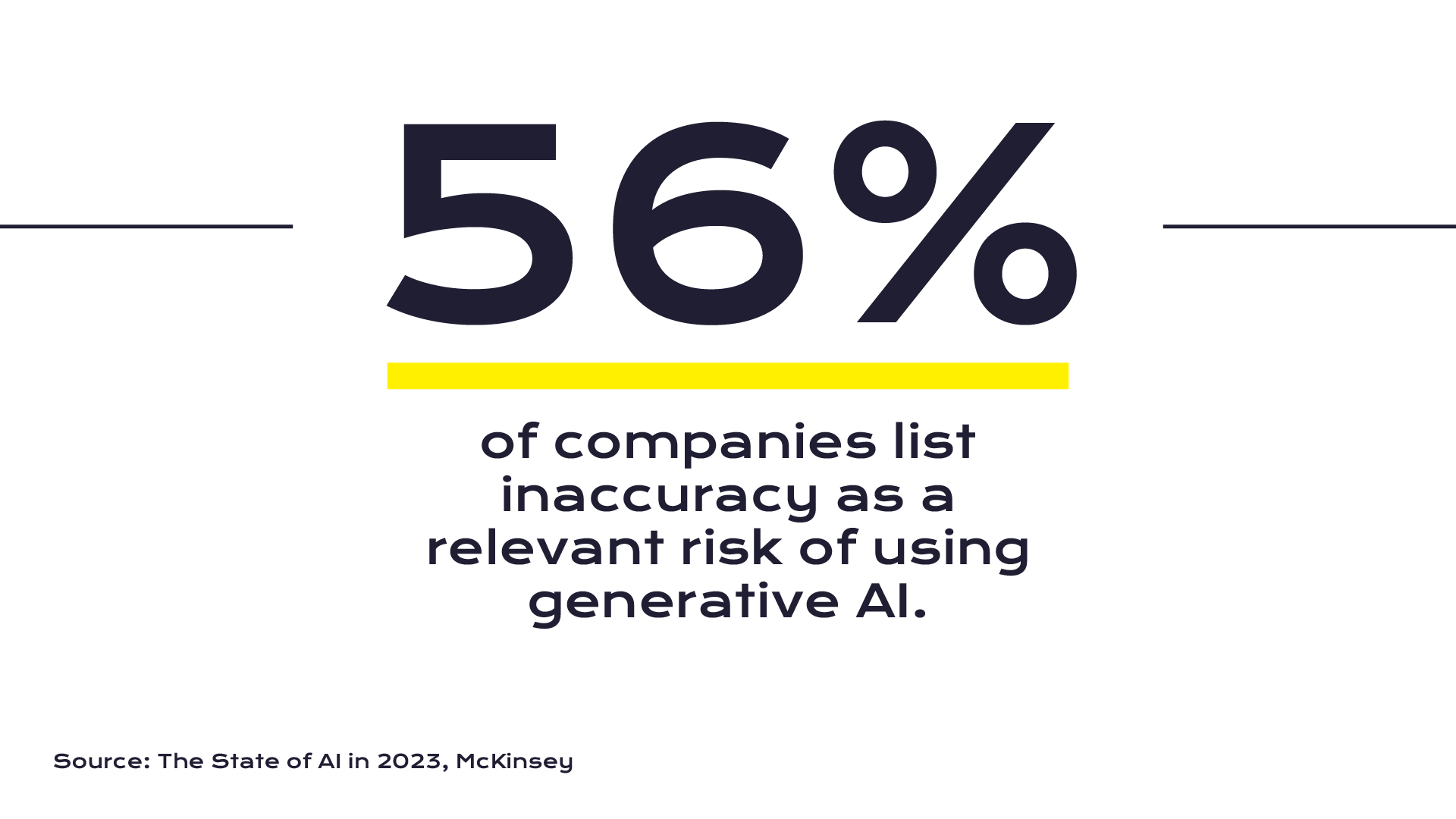Generative artificial intelligence (AI) tools have impressive capabilities. Through the power of natural language processing (NLP) and machine learning, tools like ChatGPT can play Scrabble, write code, and explain nostalgia to a kindergartener. But can these capabilities extend to the point where they can get rid of content marketing as we know it?
In short: no.
Although it may be able to transform how we go about digital marketing strategies like content creation and search engine optimization. Here’s a look at what the future of content creation may hold, ChatGPT and all.
1. SEO and Content Marketing Will Remain Vital
Despite fears that ChatGPT will make Google Search (thus SEO) irrelevant, that couldn’t be farther from the truth. For starters, ChatGPT and similar tools like Google Bard were not built as search engines.
Even Google Bard works as a companion tool to Google search, giving you the option to run your question through Google search to find citable sources.
Similarly, content marketing is not going anywhere anytime soon — 93% of B2B marketers either have a content marketing strategy or plan to implement one in the next 12 months.
SEO and content marketing work in tandem to help companies build, maintain, and nurture healthy sales pipelines. Perhaps the way content looks may change — we may see more investment in areas such as video, but the content itself won’t go away.
2. The Use of Generative AI for Content Creation Will Continue To Be Experimental
In a survey by AuthorityHacker, 75% of the surveyed marketers stated they already use AI-powered tools in their day-to-day work.
So far, marketers have leveraged AI to create workflow efficiencies by streamlining more manual processes and supporting tasks like brainstorming ideas for video content, creating outlines for blog posts, and writing short-form content like social media posts.
Given the high proportion of early adopters, it’s likely that we’ll see a percentage of companies experimenting with generative AI to create new content.
The main benefit is that AI enables brands to generate a lot of content quickly. However, a few problems with AI-generated content prevent it from being a sustainable way to create engaging content.
First and foremost, there’s the price of paying for quantity by sacrificing content quality. When looking at content quality, inaccuracies in AI content remain a top concern, listed by 56% of companies as a relevant risk.

Having a large library of content on your website will do little to attract an audience and keep them engaged if your readers can’t trust the reliability of the information you provide.
Not to mention, with SEO remaining a relevant marketing strategy, using AI for content production also brings up uniqueness and plagiarism issues.
Using AI tools to generate content results in generic writing similar to any other brand using the same tool trained on the same data. Any benefits teams may gain from speed will be greatly outweighed by the content’s inability to rank on search engines and resonate with readers.
3. Full-Funnel Content Will Become More Important
Many brands are realizing that while SEO is a cost-efficient and effective way to bring leads into the sales funnel, it shouldn’t be their content marketing team’s sole focus. Once potential customers have discovered your brand, content plays a significant role in their eventual purchasing decision.
A study backs that up, showing that 84% of B2B consumers said the winning vendor’s content positively impacted buying decisions.
The importance of mid and low-funnel content only seems to be growing, as 55% of B2B buyers say they rely more on content to inform their research and decision-making when choosing vendors.
Brands wanting to keep leads engaged need to meet changing buyers’ needs by providing relevant content at all sales funnel stages.
For instance, adding clear and specific details about your product can improve your chances of converting leads. In particular, 72% of B2B buyers say they’re more likely to buy when the vendor has transparent pricing information on the website.
Beyond product specifications, brands need to focus on creating the types of content that showcase how their product is relevant for different customer segments. That can be done by sharing assets like case studies, webinars, and ebooks that illustrate your product’s functionality, use cases, and impact.
4. Brand Building Will Still Require Human Connection
Despite the many applicable uses and opportunities AI writing tools present, they also have limitations. When it comes to brand building, AI doesn’t have the empathy required to build strong connections with your target audience.
Brands need content creators who can establish a unique voice and tone to set themselves apart and build relationships with customers. AI, by nature, delivers generic responses that make it difficult to use them to create high-quality content that can set your brand apart from the competition.
You still need humans at the wheel, steering your brand in the right direction and taking the temperature of your target audience to know if you’re succeeding.
Final Thoughts: The Future of Content Creation for Businesses
The recent advancements in AI will no doubt shape the future of marketing and content creation. AI has the power to make teams more efficient, but it can’t replace the essence of content marketing, which is about connecting with an audience.
That need will always stay the same, and it will always require humans. New technology might just change the how: how we work, how our content looks, and how audiences connect with brands.
At The Blogsmith, we’re committed to staying at the forefront of content marketing and SEO growth so we can help our clients navigate the opportunities and pitfalls of transformative tools like AI. If you’re interested in working with a partner who can help you create a successful and sustainable content strategy, get in touch with The Blogsmith today.
About the Author

Maddy Osman is the bestselling author of Writing for Humans and Robots: The New Rules of Content Style. She’s a digital native with a decade-long devotion to creating engaging, accessible, and relevant content and the founder of The Blogsmith content marketing & SEO agency. Her experience earned her a spot in Semrush’s and BuzzSumo’s Top 100 Content Marketers and The Write Life’s 100 Best Websites for Writers.
Comments